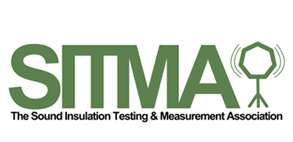Offices Nationwide

Environmental Noise Levels
According to the National Institute for Occupational Safety and Health, the maximum exposure time at 85 dBA is eight hours.
At 110 dBA, the maximum exposure time is one minute and 29 seconds. If you must be exposed to noise, it is recommended that you limit the exposure time and/or wear hearing protection.
A three dBA increase doubles the amount of noise, and halves the recommended amount of exposure time.



Good Hearing?
A typical person with good hearing can hear from about 20Hz to 20kHz (the audio bandwidth). A person's voice will usually range from 500Hz to 2kHz.



Point of Reference
Points of Reference *measured in dBA or decibels:
- 0 The softest sound a person can hear with normal hearing
- 10 normal breathing
- 20 whispering at 5 feet
- 30 soft whisper
- 50 rainfall
- 60 normal conversation
- 110 shouting in ear
- 120 thunder



Noise Disturbance
Building acoustics can help to mitigate the effects of noise disturbance which can have negative effects on health, well-being and general quality of life.
The Noise Policy Statement for England (NPSE) defines noise pollution as:
- Environmental noise: which includes noise from transportation sources. - Neighbour noise: which includes noise from inside and outside buildings. - Neighbourhood noise: which includes noise arising from industrial and entertainment premises, trade and businesses, construction sites and noise in the street.
This can be an important consideration for the location, design and construction of new developments.


Copyright 2025 E2 Specialist Consultants Limited
Company No. 06728970

































